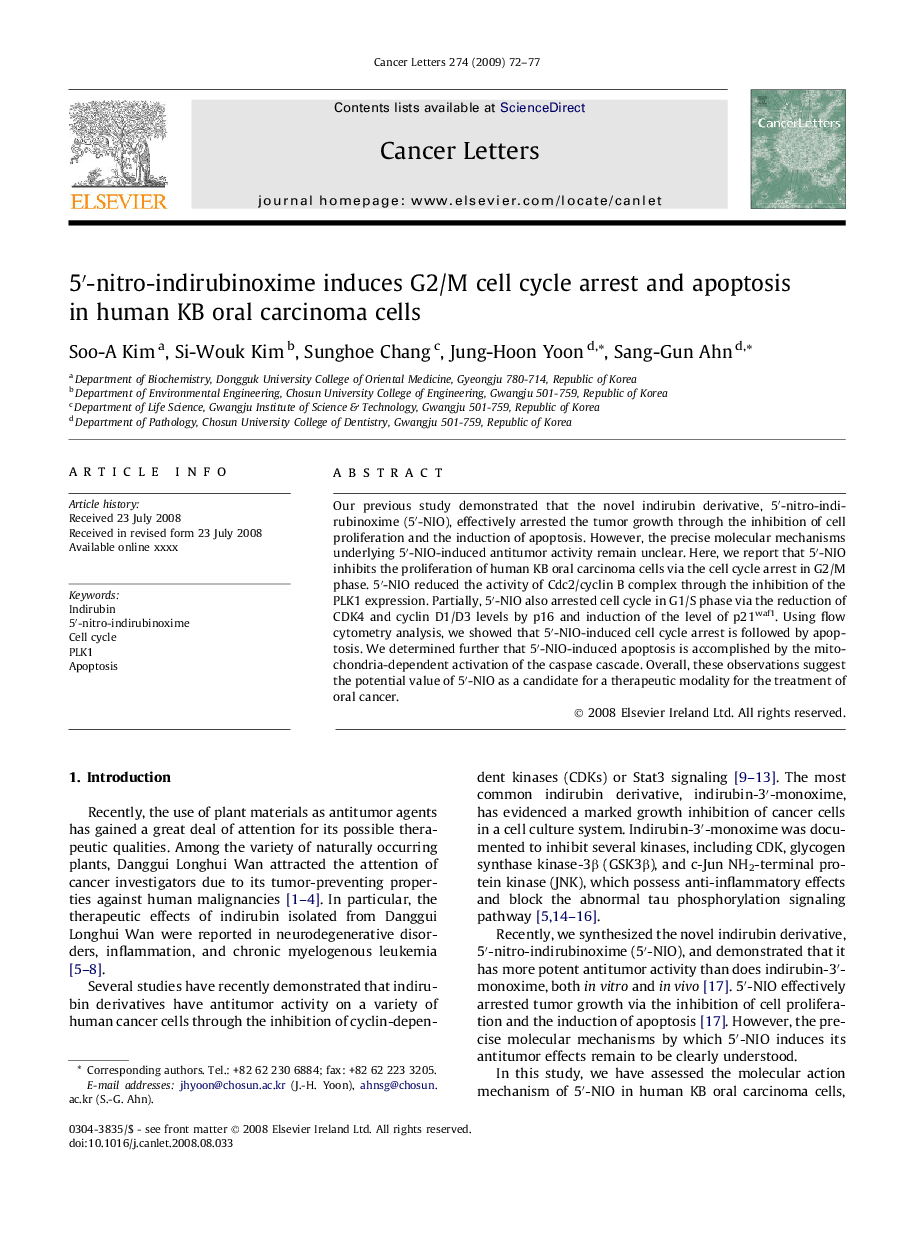| Article ID | Journal | Published Year | Pages | File Type |
|---|---|---|---|---|
| 2114581 | Cancer Letters | 2009 | 6 Pages |
Our previous study demonstrated that the novel indirubin derivative, 5′-nitro-indirubinoxime (5′-NIO), effectively arrested the tumor growth through the inhibition of cell proliferation and the induction of apoptosis. However, the precise molecular mechanisms underlying 5′-NIO-induced antitumor activity remain unclear. Here, we report that 5′-NIO inhibits the proliferation of human KB oral carcinoma cells via the cell cycle arrest in G2/M phase. 5′-NIO reduced the activity of Cdc2/cyclin B complex through the inhibition of the PLK1 expression. Partially, 5′-NIO also arrested cell cycle in G1/S phase via the reduction of CDK4 and cyclin D1/D3 levels by p16 and induction of the level of p21waf1. Using flow cytometry analysis, we showed that 5′-NIO-induced cell cycle arrest is followed by apoptosis. We determined further that 5′-NIO-induced apoptosis is accomplished by the mitochondria-dependent activation of the caspase cascade. Overall, these observations suggest the potential value of 5′-NIO as a candidate for a therapeutic modality for the treatment of oral cancer.
